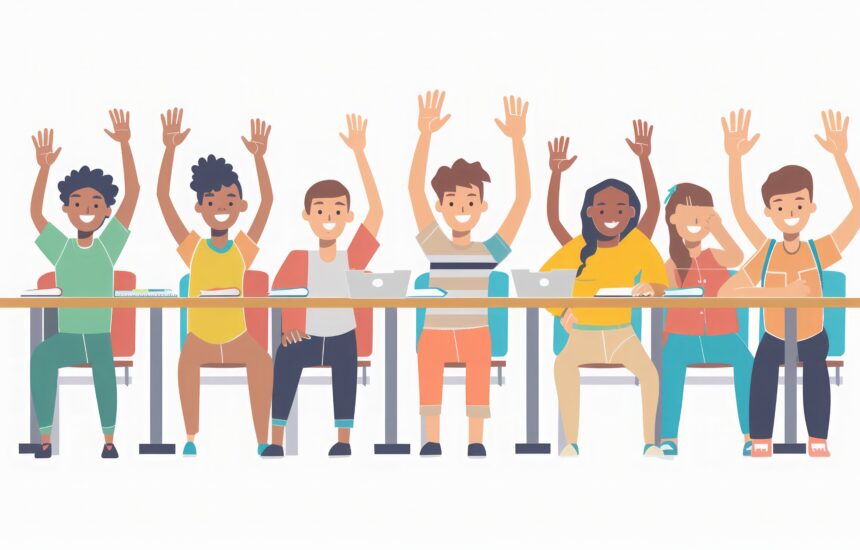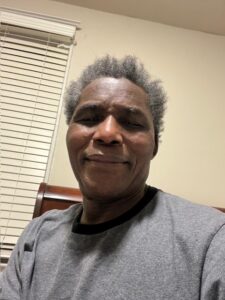Not Just My Name, but My Authentic Self

This post is part of a blog series focused on creating welcoming pathways for refugee/(im)migrant educators in the U.S.

This post is part of a blog series focused on creating welcoming pathways for refugee/(im)migrant educators in the U.S.
By James Monxhwdey, Pathways to Teaching Fellow
Our cultures and traditions do a brilliant job in defining who we are and place us in specific geographical, social, familial, and cultural locations. These compelling properties are not based on any established standard or rubric that offers a scale to which an individual looks for her place in the world. They are like a birthright that cannot be dismissed or ignored in a shared space occupied by participants from diverse backgrounds.
But rather than raising, furthering, and celebrating the many ways we show up as individuals or as a group, our personal feelings, tastes, and opinions sometimes create splits among us and make it hard for us to accept each other as human beings who belong to a common group: the human race.
This blog attempts to promote the relevance of each person – whether a student or an employee/educator – who shows up in an environment where physical and emotional care are critical factors. Each person shows up just as they are, and rightfully expects to be their authentic self.
Culturally relevant, responsive, and sustaining pedagogies are becoming one of the leading strategies that is changing diverse classrooms for the better. Through these pedagogical methods, practitioners recognize the special and unique ways students show up in their care, recognizing that these students come with assets to enrich the teaching and learning space.
What is a classroom or a workplace but a social setting where each member represents a wealth of assets? And what better purpose could a classroom serve than leaning happily into each child’s culture for the benefit of a rich and diverse community where everyone can relate to and be proud of their authentic selves and celebrate each culture in the form of attire, art, music and foods?
A culturally responsive classroom prepares students and caregivers to step out of their comfort zones and open their arms to welcoming new and different cultural identities as they promote acceptance, inclusion, and equity for individual members. A culturally relevant, responsive, and sustaining classroom validates each participant’s background no matter where they come from, what they wear, what language they speak, not to mention the color of their skin. Moreover, everyone brings different perspectives and relevance to the core subjects (math, language, science, social studies, etc.) from the way they have experienced these subjects in their familiar environment.
This approach to teaching and learning is a liberating approach for the changing face of the American classroom. The approach is liberating for several reasons:
For all the reasons mentioned above, the U.S. classroom must cherish, welcome, and invest in the promotion of culturally relevant, responsive, and sustaining pedagogies and use them to create a wholesome place where every child is valued and considered essential.
In the fall of 2023, I accepted an offer by Pathways to Teaching Fellowship to join a cohort of individuals interested in learning more about the U.S. education system because of their desire to become educators in the U.S.
I was not sure if the project would be a good fit for me until I saw the roster and participant backgrounds. It was rare for me to participate in a group that represented colleagues from diverse backgrounds, and countries with related stories: the stories of refugees and (im)migrants.
The participants came from Afghanistan, Rwanda, Nigeria, Egypt, Liberia, and other places, and raised my confidence in the course. This space provided a place to share mutual refugee stories and diverse cultural traditions, which remained alive throughout the course when members spoke about their traditional foods, their names and what they mean, the colorful attire and artifacts they exhibited in their posts, and more. Also, the resources that the facilitators made available throughout the project provided easy access to critical information.
As a Liberian refugee preparing to accept a full-time teaching position in the U.S. classroom, I am aware of the need to recognize and promote pedagogy that is student-centered and that values students’ cultures and backgrounds.
As a teacher, I will share refugee/immigrant stories with my students in the learning environment. Our collective story will promote empathy and understanding. I believe that every child can learn, and one of the important ways to prove this is to give each what she deserves. I cannot give a child what she needs until I show interest in her true self and use the information to promote culturally relevant, responsive, and sustaining learning experiences.
When designing learning activities in the classroom or workplace, teachers, and trainers play a significant role in how they affect students and employees. Promoting the physical and emotional needs of everyone in our care should be a critical aspect of the learning activities.
Culturally relevant and responsive teaching is about embracing the diverse population and using their rich background, knowledge, and experiences to create a loving, caring, and respectful classroom and workplace where everyone can belong and value each other’s culture and background.
I hope you’ll join me in the work to build these inclusive and equitable education spaces for all children.

James Monxhwdey is from Liberia and now lives in the District of Columbia, where he works as a special education paraprofessional. He relocated to the U.S. as a refugee in 1990. James runs a nonprofit, Gbawin Literacy Project, which provides school supplies and teacher training to a village school in Liberia.